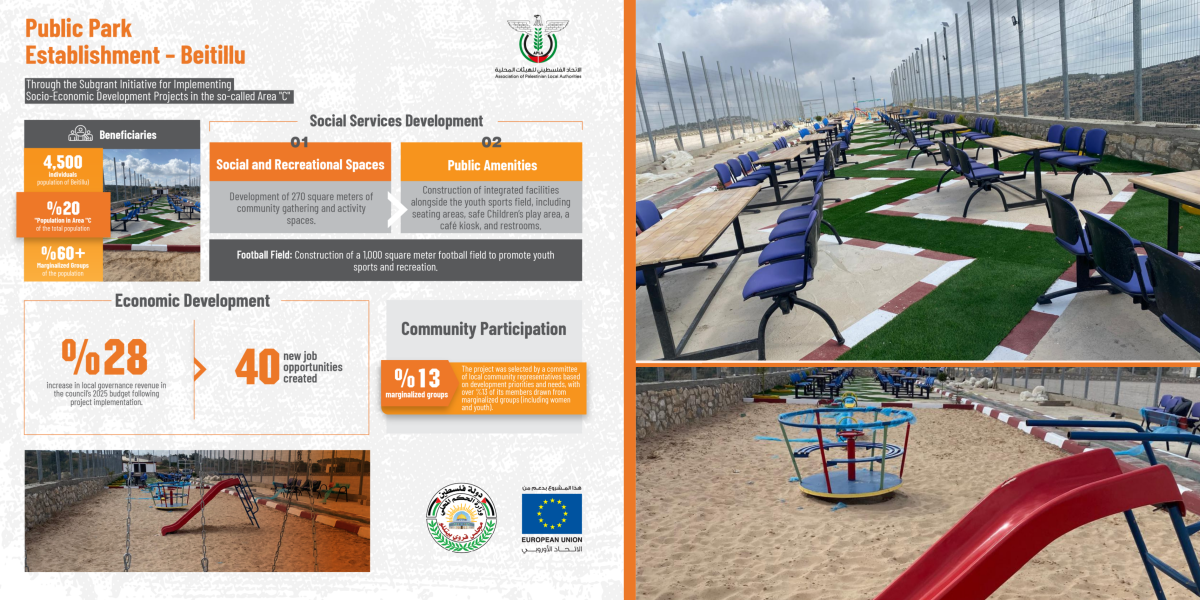Beitillu | Public Park Establishment
Northwest of Ramallah, the stone houses of Beitillu spread across the hills, while the waters of its springs flow between terraces of ancient olive trees. The place feels like a mirror of history, carrying its old name “Beit Elu,” meaning “House of God” in ancient Canaanite, later transformed into “Alon” in the Roman era before settling into its present form. Along the fields and age-old paths, the fragrance of wild thyme rises with every step—like the memory of the land speaking in the language of scent, telling generations the story of a village that has endured all who passed by.
Yet this captivating scene is hemmed in by harsh restrictions. Beitillu, like other villages in the areas classified as “C,” lives under conditions that stifle urban expansion, limit basic services, and postpone development indefinitely. Children grew up without a safe playground, youth without a space to release their energy, and families without a gathering place to sustain their social life.
In this context, the project of rehabilitating public spaces and establishing a sports field and public park came to reshape not only the face of Beitillu but also that of the neighboring communities—Deir Ammar, Jammala, and the Deir Ammar Refugee Camp. What was once a neglected dump site has been transformed into a vibrant common ground: a sports field that opens its gates to young people, a park where children can laugh freely, pathways accessible for persons with disabilities, and quiet sitting areas for the elderly. At the same time, the project created job opportunities for local residents, generated an additional source of income for the village council through kiosks and services, and restored the public space as a cornerstone of resilience.
The deeper meaning, however, extends beyond Beitillu itself. This experience stands as a practical model for all villages facing the same restrictions: that life can be reclaimed through tangible steps, and that public space is not a luxury but a safeguard against the fragmentation of community. Today, Beitillu does not tell its story alone—it opens a wider horizon for collective thinking about the future of “C” villages, where every meter reclaimed becomes an act of survival.


This project is part of the Sub-Grant Program, which is implemented by the Association of Palestinian Local Authorities (APLA) in Area C. The initiatives under this program are not merely about infrastructure improvement, but serve as practical tools to keep communities rooted in their land, expand spaces of life in the face of closure and confiscation, and turn development into a daily act of resilience that safeguards rights, memory, and existence.
funded by: the European Union and the Swiss Agency for Development and Cooperation (SDC)

 Key Indicators
Key Indicators
 Cultural Heritage
Cultural Heritage
 Public Parks
Public Parks
 Renewable Energy
Renewable Energy
